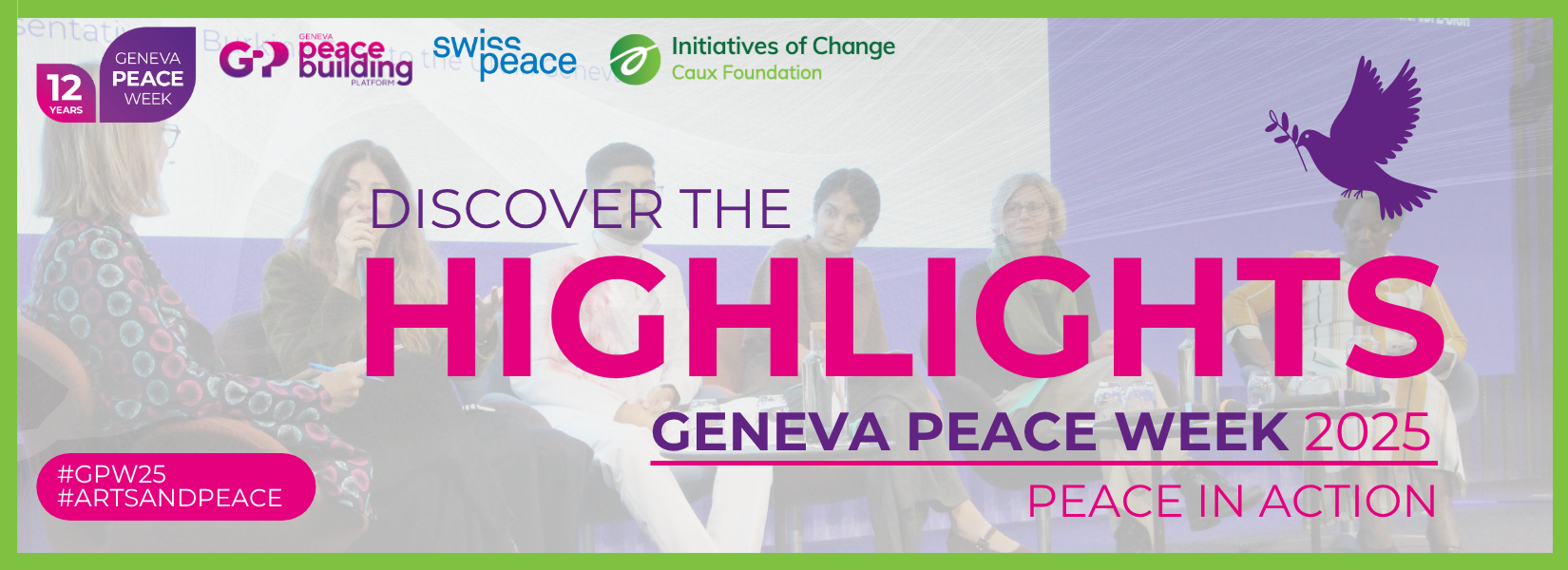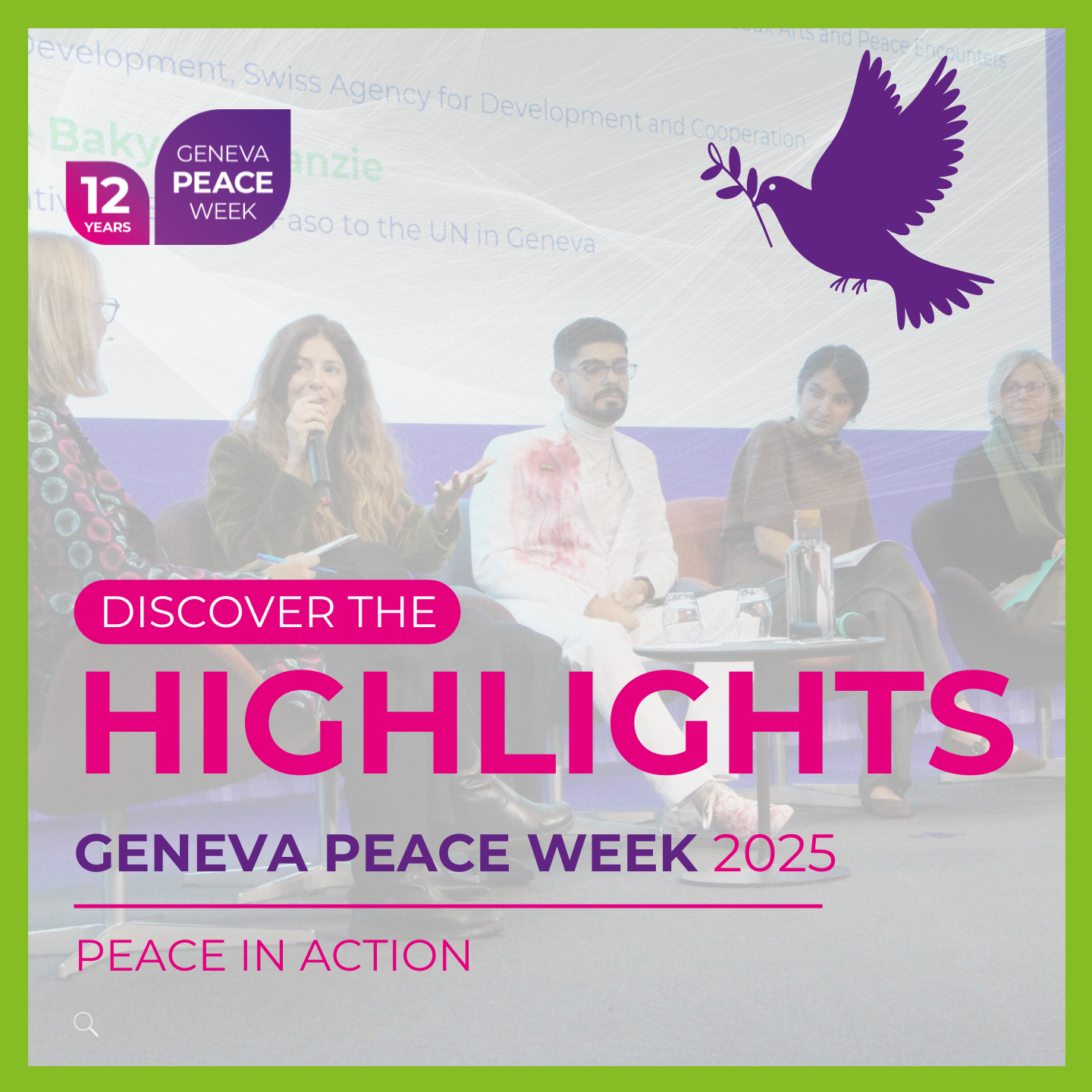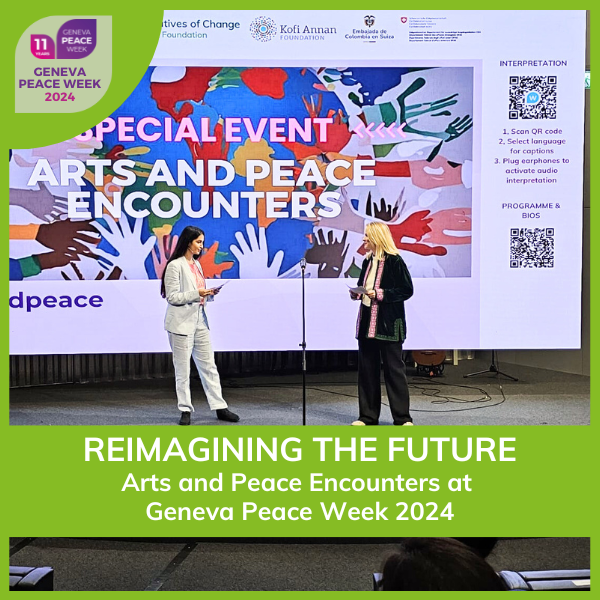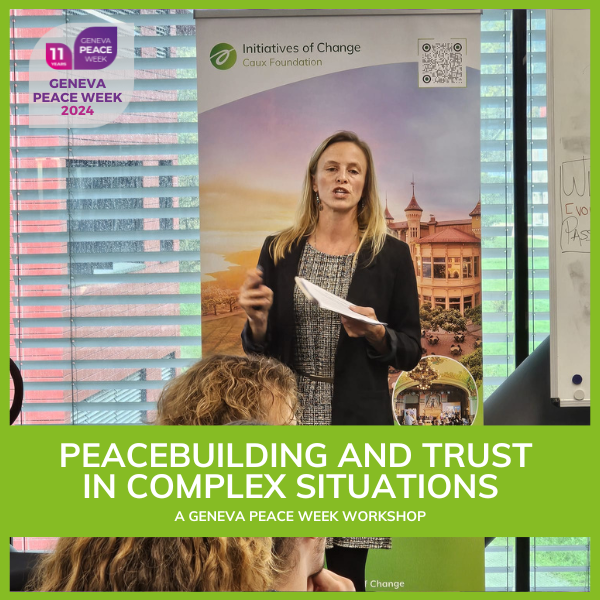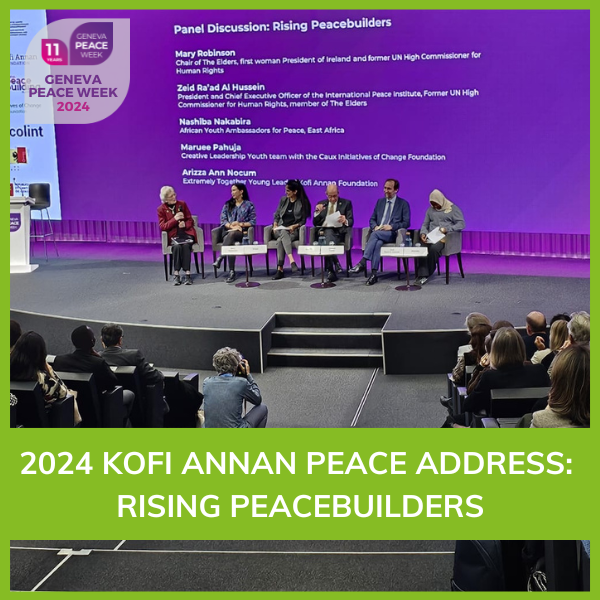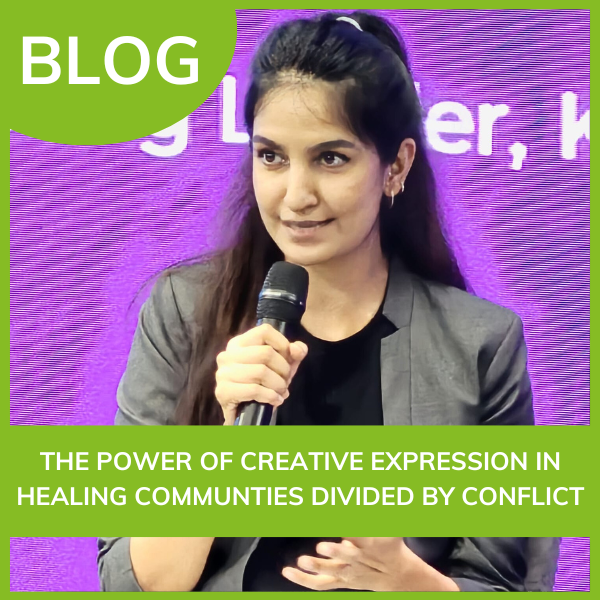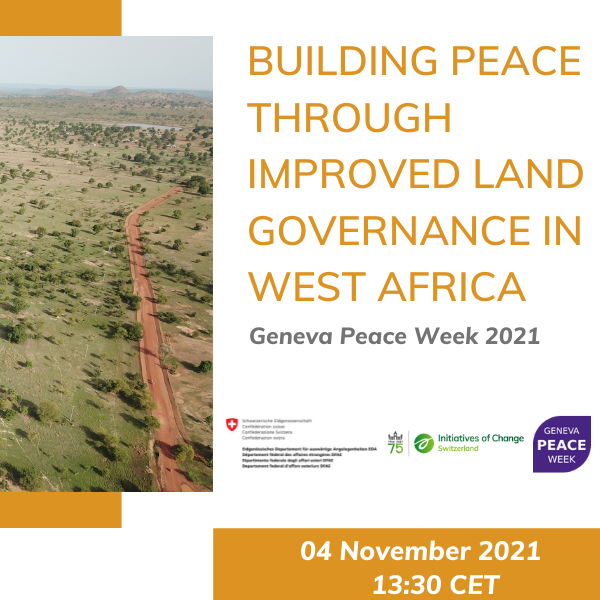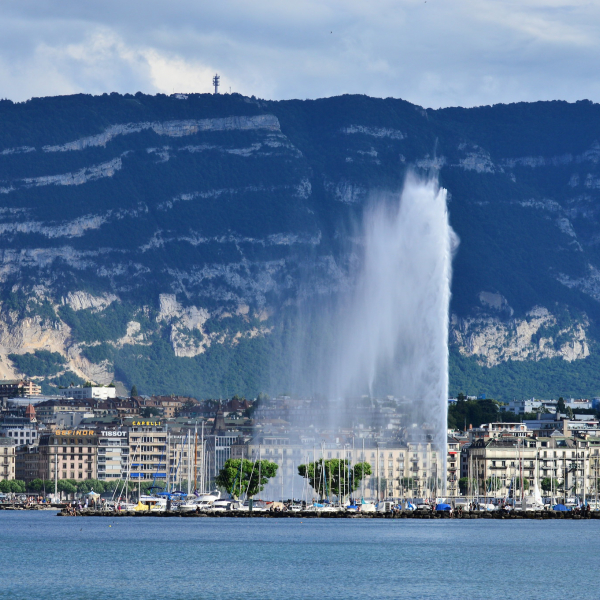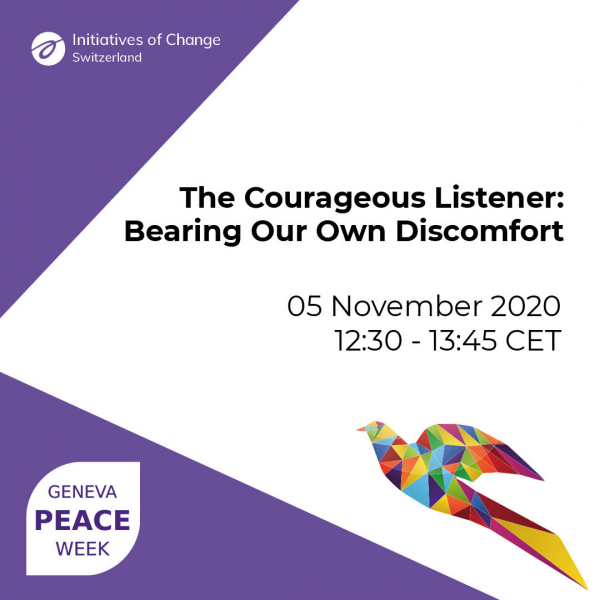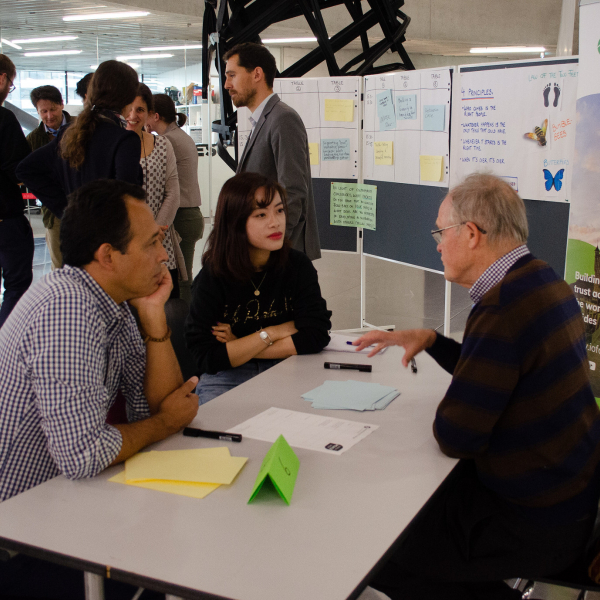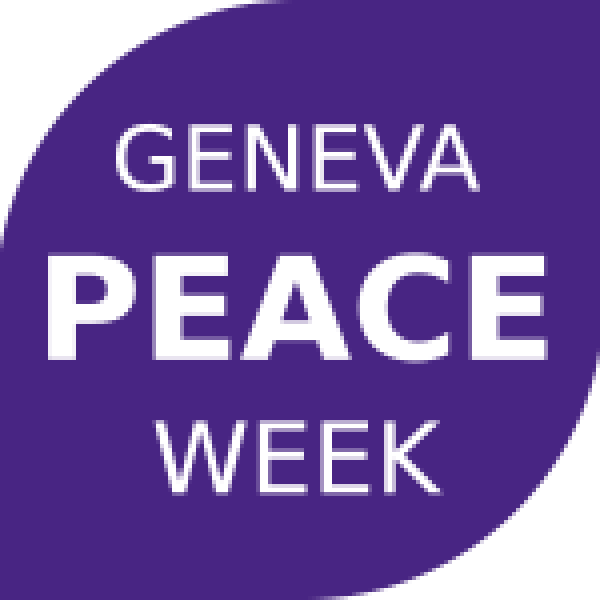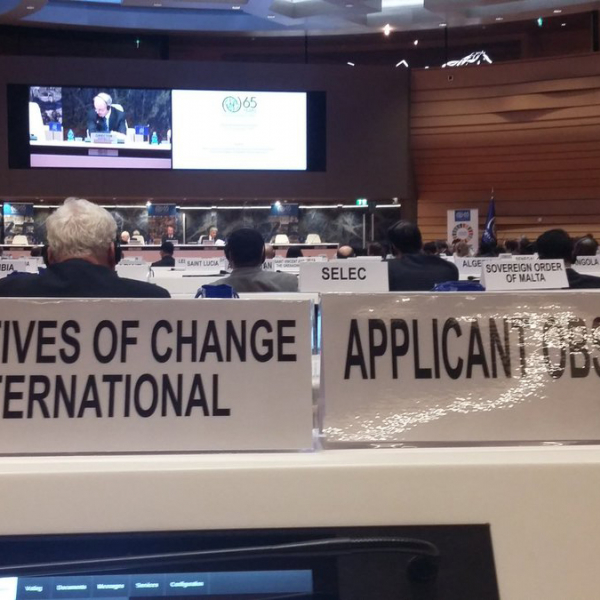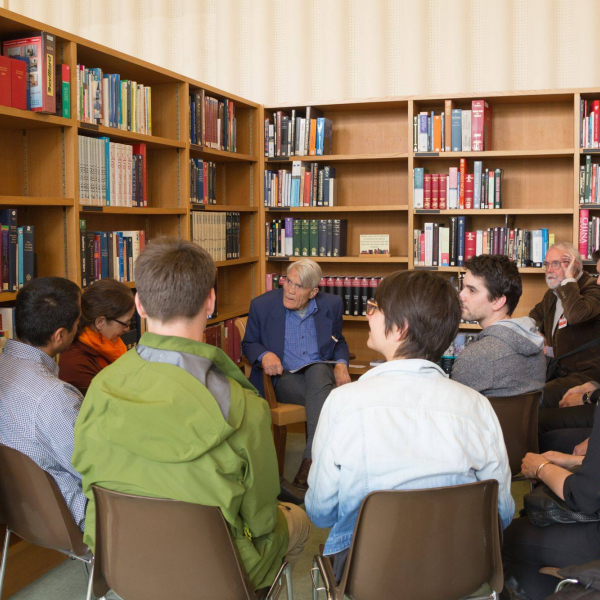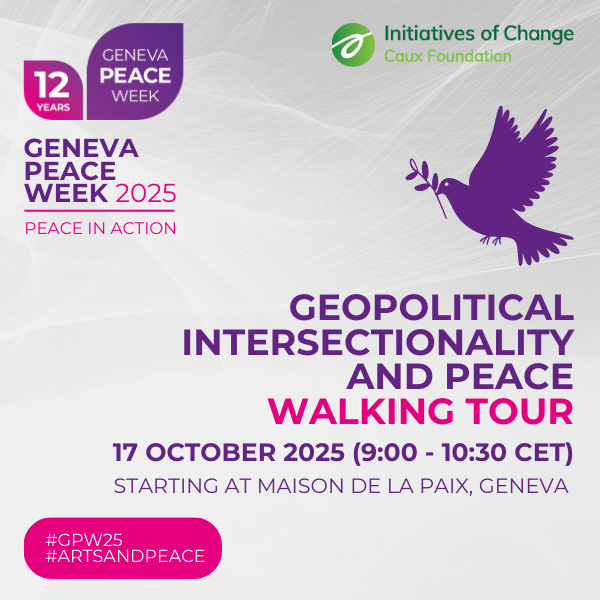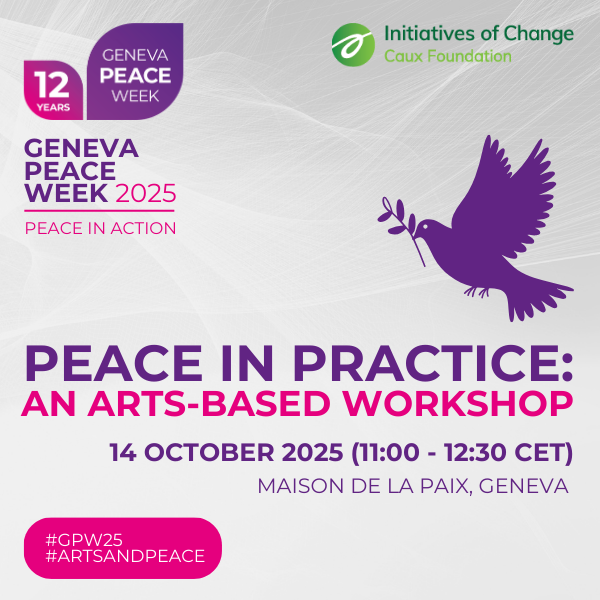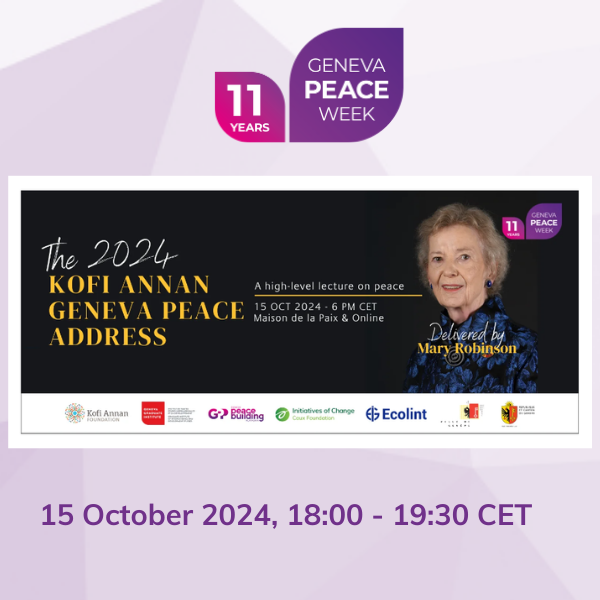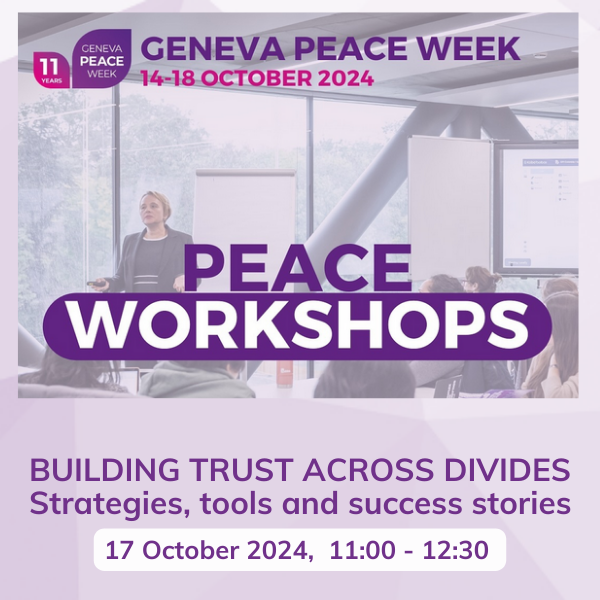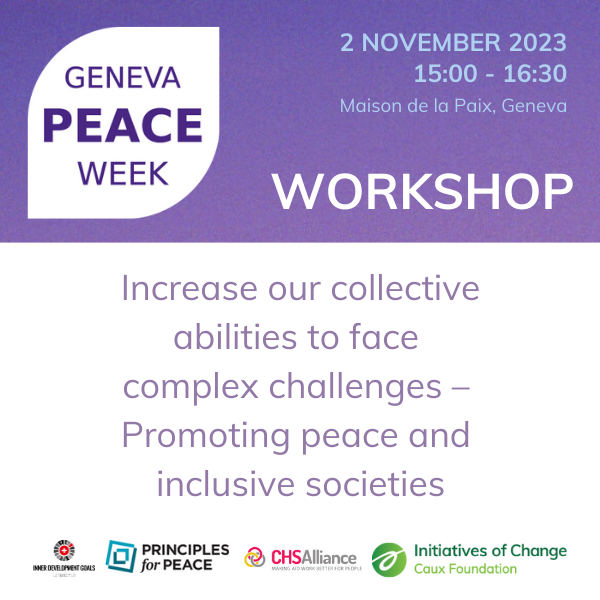Arts and Imagination as Pathways to Peace – Highlights from Geneva Peace Week 2025
22/10/2025
The 12the edition of Geneva Peace Week (13–17 October) brought together thousands of peacebuilders, diplomats, artists, and changemakers under the theme “Peace in Action.” This year, Caux Initiatives of Change was honoured to present three events, exploring how creativity, mindfulness, and the arts can inspire more compassionate and resilient forms of peacebuilding
“Peace in Practice” Workshop: Arts and Mindfulness for a Better World
On 14 October, Caux Initiatives of Change hosted a transformative arts-based workshop led by expressive arts consultant and visual artist Maruee Pahuja (India), and Ines Mokdadi (Tunisia), Global Engagement Events Coordinator at the Caux Foundation. Both are also part of our youth-led Creative Leadership initiative, bringing creativity and empathy to the heart of peacebuilding.
Through movement, silence, drawing, and creative writing, participants explored how imagination and expressive arts can help us reconnect with compassion—for ourselves and for others. From reflective warm-ups like “How would your best friend describe you?” to exercises with light, photography, and poetry, the workshop offered a space to pause, reflect, and rediscover the creative potential at the heart of peacebuilding.
As Maruee reminded participants: “Choose to use life as a medium for peacebuilding: we begin with imagination, we begin with light, we begin with the smallest creature—because even the smallest can carry a revolution.”
The session illuminated how creative expression fosters hope, mindfulness, and resilience, helping us move beyond polarization and reconnect with empathy.
Peace in Motion: Exploring Geopolitical Intersectionality and Public Spaces in Geneva
On Friday, 17 October, Dr. Gal Harmat (swisspeace) and Sarah Noble (Head of Global Engagement at Caux Initiatives of Change) led a thought-provoking geopolitical intersectionality and peace walking tour through Geneva, exploring how public spaces reflect and shape our understanding of peace, gender, and identity.
From Monika Sosnowska’s “Façade” at the Geneva Graduate Institute to the Broken Chair, Place des Nations Fountain, and memorials for Srebrenica and the Genocide against the Tutsi, participants reflected on questions such as:
- Who is represented in public art—and who is missing?
- Whose suffering and resilience are remembered?
- How do gender and social norms influence our urban landscapes?
Dr. Harmat also noted that 96% of public sculptures in Western Europe and North America depict men, while women and queer figures are often faceless or passive - an imbalance that shapes how we perceive both art and peace.
“Peace is small, fragile, and needs resuscitation — and maybe it’s our responsibility to take care of it,” she concluded.
The tour encouraged participants to look at cities—and at peace itself—with renewed awareness, curiosity, and care.
Closing Ceremony: Arts and Peace Encounters – How The Arts Build Bridges
The Closing Ceremony of Geneva Peace Week 2025, organised by the Caux Initiatives of Change Foundation in partnership with the Geneva Peacebuilding Platform, brought together artists, peacebuilders, diplomats, and changemakers to reflect on the role of the arts in peacebuilding.
The event opened with a moving spoken word performance by Maryam Bukar Hassan, whose poetry embodied the courage and imagination at the heart of peace.
Moderator Sarah Noble (Caux Initiatives of Change) emphasized that creativity and culture are lifelines that heal and reimagine peace.
Contributors included:
Léa Baroudi (MARCH Lebanon) shared how former enemies in Tripoli turned from conflict to creation through community theatre, demonstrating that art can break barriers, allowing people to be vulnerable and reconnect with their humanity. More than 700 young men have gone through these programs. Many are now peacebuilders in their own communities.
Artist Álvaro Sebastián Quiroz Bolaños (Brigada 12 | Mexico) highlighted art as a tool for dignity and remembrance, from organizing art auctions to creating "Echoes of Reality" in honour of human rights defenders, showing how art helps to give visibility and dignity to those who are forgotten, and to create spaces for hope.
Indian visual artist Maruee Pahuja reflected on how arts, for the Creative Leadership programmes, have allowed participants to imagine leadership differently - with empathy, curiosity, and playfulness rather than hierarchy and burnout: "Art gives us a language when words are not enough."
Barbara Aebischer (Swiss Development & Cooperation/ FDFA) shared how culture offers people a neutral, creative environment, creating opportunities for discussion, for accountability and for building understanding. Using an example from Mozambique she described how music can be a powerful tool to express resilience, process trauma and share hopes and dreams, bridging divides between communities.
H.E. Ambassador Sabine Bakyono Kanzie (Burkina Faso) explained how cultural traditions like parenté à plaisanterie (“joking kinship”) soften divisions, build trust, and create a common language in diplomacy.
The ceremony came to an end with Naël Melerd’s slam poem “Cœur et Esprit / Heart and Spirit,” a poignant reminder that peace must be guided not only by reason, but by the heart.
In her closing remarks, Dr. Annyssa Bellal, Executive Director of the Geneva Peacebuilding Platform, reflected on the energy and impact of this year’s Geneva Peace Week, noting the participation of over 5000 attendees, 200+ speakers, and 135 organizations across 100+ activities. She thanked the board members, consortium partners, volunteers, staff, and sponsors whose dedication made this inspiring week possible.
Continuing the Journey
Through creative reflection, mindful movement, and artistic dialogue, the Caux Initiatives of Change Foundation’s events at Geneva Peace Week highlighted how imagination and collaboration can bring peace in action to life. Participants were encouraged to carry this spirit forward — and to join the Caux Arts and Peace Encounters (CAPE) 2026 (10–13 May 2026) to continue exploring creativity, compassion, and dialogue.
🔗 Register your interest for CAPE 2026 here
👉 Sign up for our newsletter to stay informed about our upcoming events.
Photos: Eve Brenot, Tina Clifton and Mélanie Lam
